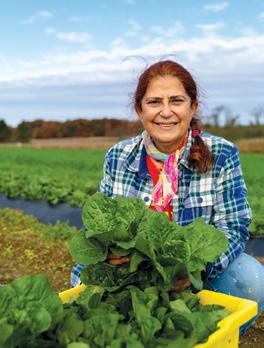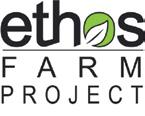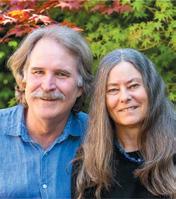Regenerative Organic Gardening Tips

Tackling Too Much Histamine
Kid-Friendly Gut Health

Regenerative Organic Gardening Tips

Tackling Too Much Histamine
Kid-Friendly Gut Health
To advertise with Natural Awakenings or request a media kit, please contact us at 267-544-9585 or email Publisher@NABuxMont.com. Deadline for ads: the 5th of the month.


Email articles, news items and ideas to: Publisher@NABuxMont.com Deadline for editorial: the 5th of the month.
Submit calendar events online at NABuxMont.com Deadline for calendar: the 5th of the month.

Advertise your products or services in multiple markets! Natural Awakenings Publishing Corp. is a growing franchised family of locally owned magazines serving communities since 1994. To place your ad in other markets call 239-206-2000. For franchising opportunities call 239-206-2000 or email Natural Awakenings@KnoWEwell.com.

Don’t you love it when little surprises happen? A few years ago, I was on my front porch tending hanging plants. I had lowered a trailing petunia to pluck withered blossoms and, as I moved the greenery about, something caught my eye. To my surprise, it was a small bird’s nest, and in its bed were three tiny, slightly speckled eggs. I was delighted. I’d seen nests from time to time in the upper reaches of trees, but I’d never had the opportunity to view one so close. It was like peering into a different world—a very tiny one that only needed a quiet section of a potted plant to feel secure enough to renew the cycle of life. Like an echo of truth, the image has reverberated in my mind.
Each time something like this happens I am reminded that surprise is fundamental to awareness. We worry about what we think might happen, but we learn by what surprises us. Sometimes it’s a “good” surprise, sometimes a “bad” one but regardless of how we judge it, that which surprises us carves a nest within our consciousness, sparking new thoughts and connections. In essence, the force behind surprise is creative—its nature is to renew the cycle of life within our own awareness by shaking up the status quo in our minds.
As you walk this journey of exploration, may you find surprise in every path. Enjoy the Day!
Kathy Tarbell Managing EditorPublisher Joe Dunne
Publisher@NABuxMont.com • 908-405-1515
Managing Editor Kathy Tarbell Kathy@NaturalAwakeningsNJ.com
Contributing Writer Kiki Powers
Layout Design Melanie Rankin
Sales & Marketing Joe Dunne
Digital Marketing Kristy Mayer

Accounting/Billing Asta Dunne Asta@NaturalAwakeningsNJ.com

Joe Dunne
Cell: 908-405-1515 • Fax: 239-920-5147
Publisher@NABuxMont.com NABuxMont.com
Visit our Facebook page for the latest health updates and information, or to post your events and comments.
CEO Kimberly B. Whittle
National Editor Sandra Yeyati
Editor Brooke Goode
Copy Editor/Proofreader Melanie Rankin
Design & Production Gabrielle W-Perillo
National Advertising Lisa Doyle-Mitchell
Natural Awakenings Publishing Corporation 350 Main Street, Suite 9B Bedminster, NJ 07921
Ph: 239-206-2000
NaturalAwakenings@KnoWEwell.com
© 2023 by Natural Awakenings. All rights reserved. Although some parts of this publication may be reproduced and reprinted, we require that prior permission be obtained in writing.
Natural Awakenings is a free publication distributed locally and is supported by our advertisers. Please call to find a location near you or if you would like copies placed at your business.
We do not necessarily endorse the views expressed in the articles and advertisements, nor are we responsible for the products and services advertised. The content herein has not been evaluated by the Food and Drug Administration and is not meant to treat, diagnose, cure or prevent any condition. Statements are the opinion of the author/speaker. Check with a healthcare professional regarding the appropriate use of any treatment.
Natural Awakenings Magazine is ranked 5th Nationally in CISION’S® 2016
Natural Awakenings is printed on recyclable newsprint for the environment.
The moments of happiness we enjoy take us by surprise. It is not that we seize them, but that they seize us.
~Ashley Montagu
Join
Check out and post “What’s New”. Be Inspired, find opportunities, upcoming events & more
& join 200+ RWH Topic Communities. Power Search centralized local & global knowledge & resources

Your way from thought leaders and experts (curated articles, online webcasts, courses, live events

With your best matched, screened providers and organizations, plus like-minded members
With top doctors & experts in live video Q&A. Plus get members-only discounts on their programs
Access to a vast growing catalog of courses. Plus, curate your own library to track your progress
On top provider and expert services, healing programs, training, courses & products
Top In-Hub thought leaders and missionaligned partner communities with exclusive benefits


RegeneSpine is a pain management and interventional orthobiologic practice that serves patients from around the world. In June, the practice announced the inauguration of an additional location in Parsippany, NJ. The new facility will enable the practice to extend its services to a wider area. Dr. Stephen Roman, founder, also sees patients at his Manhattan office in New York City.
Locations: 299 Cherry Hill Rd., Ste. 105, Parsippany, NJ and 1230 Whitehorse Mercerville Rd., Ste. C, Mercerville, NJ. For more information, call 1-888-352-3038 or visit RegeneSpine.com/contact-us. See ad, back cover.

Thank
Ethos
Farm Project (EFP) is excited to announce Farm Days Festival 2023 this fall, a weekend long event on September 9-10, to be held at Ethos Farm, a historic 342-acre farm located at 177 West Mill Road, in Long Valley, NJ. This weekend-long event with inspiring speakers focuses on the ethics of eating and how whole plant-based food is medicine.

Expert speakers from across the country will be presenting, including Peter Singer, Rich Roll, Dr. Dean Sherzai, Dr. Ayesha Sherzai, Dr. Columbus Batiste, Dr. Meagan Grega, Sara Farley, Brittany Jaroudi, Bob Quinn and EFP Founder Dr. Ronald Weiss. These luminary speakers will speak about the impact of our diets on health, climate change and how what we eat impacts the rights of nature. In addition, there will be yoga, tours of the regenerative and organic farm, movement and mindfulness activities, and whole food plant based (sugar-, oil-, salt-free) food for sale courtesy of The Kellyn Foundation. Weiss states, “I tell people that there is no reason to feel powerless when it comes to improving their own personal health, acting to reverse climate change and the decline of species. Three times a day, every time we sit down to eat, each one of us has the opportunity to regenerate our health and the health of our planet. So, consider what’s at the end of your fork; it’s the single most powerful thing you can do every day.”
Ethos Farm Project is a 501(c)(3) whose mission is to address the interconnected nature of how agriculture affects human health, planetary health and our relationship with nature, all while producing truly nourishing food to feed our community, restoring the land, and cultivating and empowering a new generation of farmers, doctors and nurses through their hands-on educational programming.
As Greta Thunberg says, “The only thing we need more than hope is action.” Come to Farm Days Festival 2023 to learn more about how each of us can be part of the solution.
Location: 177 West Mill Rd., Long Valley, NJ. Email Inquiry@EthosFarmProject.org for scholarship requests. For tickets and information, visit EthosFarmProject.org/FarmDays. See ad, page 27.
saw
!
A new study published in Social Psychological and Personality Science has found that a person’s close relationships may either benefit or undermine physical health. The three-week study involving 4,005 participants looked at how both positive and negative relationship experiences affect the body, and how daily fluctuations in those interactions may influence changes in well-being, as reflected in self-reported stress levels and coping abilities, as well as blood pressure and heart rate reactivity biomarkers.

The researchers observed that people with more positive experiences and fewer negative ones reported lower stress, improved coping skills and better physical functioning. They also noted that ups and downs in negative relationships were especially predictive of outcomes like stress, coping and overall systolic blood pressure.
New research published in JAMA Network found that melatonin gummies may contain far more of the dietary sleep aid supplement than what is indicated on the label. Researchers from Cambridge Health Alliance and the University of Mississippi analyzed 25 different melatonin gummies and found that 22 contained a greater amount of melatonin than stated on the label. One product contained only three-quarters of the amount advertised on the label, another contained 347 percent more than what was listed, and one product contained no detectable melatonin.

These concerns come on the heels of a 2022 report by the U.S. Centers for Disease Control and Prevention, which found a 530 percent increase in the number of accidental pediatric ingestions of melatonin reported to U.S. poison control centers over the last decade, resulting in 27,795 emergency department and clinic visits, 4,097 hospitalizations, 287 intensive care unit admissions and two deaths. Most ingestions were unintentional (94.3 percent). Among those children with reported symptoms from accidental melatonin ingestion, most involved the gastrointestinal, cardiovascular or central nervous systems.
willing to stop taking one or more drugs if their healthcare provider said it was possible, and 26 percent had already stopped taking at least one drug they had been taking for more than a year. When asked which meds they would be most interested in stopping, 43 percent named their heart disease pills for high blood pressure or high cholesterol, 13 percent mentioned diabetes medicines and 10 percent included pain management prescriptions.
In a new National Poll on Healthy Aging by the University of Michigan involving adults aged 50 to 80, the vast majority of respondents expressed an interest in cutting back on prescription medications. Eighty percent would be
These results reflect a growing trend dubbed “deprescribing”. According to Deprescribing.org, a researcher-led online resource, it is the planned process of reducing or stopping medications that may no longer be of benefit or could be causing harm. The goal is to reduce medication burden or harm while improving quality of life. Seniors interested in cutting down on the drugs they are taking should consult their healthcare provider to ensure it is safe and helpful to do so.

Unresolved oral inflammation contributes to systemic disease and illness. Dental risk factors remain one of the most overlooked aspects of health and wellness. The Lanap & Implant Center has utilized an integrative biohealth methodology for accurate diagnosis and treatment for over 25 years.
Our solutions include:
• Biocompatibility testing, health risk assessment
• Incisionless, same-day tooth replacements utilizing titanium or zirconia implants

• Donor less stem cell gum grafting

• LANAP single-visit laser gum regeneration
• TMJ, complex case diagnosis
• IV sedation
We incorporate acupuncture, laser bio stimulation, reflexology, massage, oral detoxification, nutrition and homeopathy for optimal outcomes.

In April, Executive Order 12898 established the White House Office of Environmental Justice to address persistent environmental injustices involving toxic pollution, underinvestment in infrastructure and services, and other harms due to a legacy of racial and economic discrimination. The new office is tasked with coordinating efforts among federal agencies to help implement innovative directives. It requires federal agencies to notify communities in the event of a release of toxic substances; directs agencies to facilitate meaningful public participation and just treatment in agency decision-making; directs agencies to identify and address information gaps related to environmental justice and make information on environmental and health concerns more publicly accessible; and implements a scorecard to evaluate federal agencies’ environmental justice efforts.

Colombia has the most bird species in the world—1,966 registered species, or 20 percent of all birds worldwide— and has updated its strategy for protecting this rich avian life, affecting all birds that inhabit the country at some
The oceans, sometimes called the lungs of the Earth, have absorbed 30 percent of carbon dioxide (CO2) emissions since the Industrial Revolution and captured 90 percent of the related excess heat. Seawater stores about 150 times more CO2 than air. Unfortunately, absorbing all that greenhouse gas has damaged sea life.

Engineers from the University of California Los Angeles (UCLA) have developed a process to cleanse the seawater of CO2 so it can store greater amounts of greenhouse gases. The process sends an electric charge into seawater flowing through tanks on a barge. The charge sets off chemical reactions to trap the greenhouse gas into a solid mineral, which is then deposited on the ocean floor, completing the cleansing process.
The engineers expect to design larger facilities based on the data obtained from their test sites in Los Angeles and Singapore and have commercial sites removing millions of tons of CO2 per year by 2025. The UCLA scientists estimate that 1,800 facilities would be needed to capture 10 billion tons of atmospheric CO2 annually beginning in 2050, thereby limiting the global temperature rise to 1.5 degrees Celsius.
point in their annual life cycle. The goal is to conserve and sustainably manage bird diversity, habitats and ecosystems by the generation of knowledge, scientific research and its application, the active participation of different sectors, policy and planning. The strategy focuses on 11 different Colombian ecosystems from the high Andean forests to savannas, grasslands and coastal areas.
This exhaustive process in the renewal of Colombia’s avian protection strategy involved more than 30 workshops and 2,000 people from every region of the country. Input from indigenous peoples and others generated practical conservation actions in their territories, as well as ancestral knowledge and an appreciation for the special connections these communities have with birds in their daily lives, resulting in a strategy that prioritizes the relationships between people and birds.

 by Marlaina Donato
by Marlaina Donato
July is a heady mix of peak temperatures, sustenance from the soil and inspired invitations to make lasting memories. For gardeners, it is a lilting time of fruition in between rounds of hard work when one’s efforts can be harvested, eaten and appreciated. Summer’s apex brings wildflower tapestries woven with cricket-song and evenings punctuated by rolling thunderstorms, but it also can be a time for us to take a deep dive into the miracle of interconnectedness.
Visiting the local farmers market is an opportunity to be mindful of all that goes into our shopping bags and bellies: rain, sunlight, nitrogen-rich snowmelt and the vital fertility of topsoil. We can see everyday people in a different light, especially Earth-conscious farmers who choose to be birthing partners of the land.
Taking a walk outside can remind us that no life would be possible without the near-magical, unseen mycelium network beneath our footsteps. Summer’s delicate balance of elements ensures abundance, and we have a sacred opportunity to be part of that equilibrium. Each of us is a link in the chain of humans co-creating within the symbiosis of all other living things. Will we take away from this balance or add to it?
Adding to it does not require hours of time or money, but the motivation to make simple decisions for the greater good, such as leaving part of the lawn to grow for the winged ones or choosing an eco-friendly refillable water bottle over single-use plastic. Showing a child how to keep a nature journal can foster lifelong connections with the Earth.
We do our part when we joyfully become part of the landscape—witnessing, observing and allowing nature to go about her business. Making time for languid appreciation contributes to self-nourishment, something that is also vital to the whole. How many avian voices can you hear at sunset? How many colors can you find in a changing mural of clouds? The season of plenty offers a harvest of beauty.
Marlaina Donato is an author, visionary painter and composer. Connect at WildflowerLady.com.

HOW SOIL AND HUMAN HEALTH ARE RELATED
 by Kelcie Ottoes
by Kelcie Ottoes
The human gut microbiome, which is critical to fighting off disease, and soil microbiome, which enables plant growth, are vitally important to maintaining all life on our planet. These two communities of microorganisms are indirectly connected in important ways, and researchers are trying to find out more about their interplay.

The human gut microbiome consists of trillions of microorganisms of different species. These microbes help to digest food, synthesize vitamins and other important compounds, regulate our immune system and even influence behavior and mood.
The gut microbiome includes both helpful and potentially harmful microbiota that coexist peacefully in a healthy person. But certain diets, or the use of antibiotics or other bacteriadestroying medications, can upset the balance, a state known as dysbiosis, which can impair the microbiome’s functions, leaving the body susceptible to disease.
The soil microbiome has many parallels to the human gut scenario. It consists of bacteria, fungi, archaea and viruses—microorganisms that play an important role in maintaining the health of the soil. They do this by breaking down organic matter, cycling nutrients and protecting crops against harmful pathogens.
Regenerative organic farming practices that promote biodiversity and disdain the use of chemical pesticides and fertilizers develop robust soil that is rich in nutrients and beneficial microbes. In such settings, farmers don’t need to use chemicals, because the microbiome creates disease-resistant soil to fight off threats.
While a direct link between the soil microbiome and the gut microbiome has yet to be proven, soil certainly impacts our health through our diet. A diverse and active soil microbiome is responsible for supporting plant growth. Plants then provide us with the nutrients that our gut microbiome needs to thrive, including calcium, magnesium, and vitamins A, C, E, K and the B complex.
Dan Kittredge, founder of The Bionutrient Institute, explains, “The sophistication of the soil microbiome is connected to the nutritional value of the food that’s produced. The healthier the [soil] microbiome, the healthier the food.” The use of fertilizers and pesticides does not directly produce less nutritious food, but rather their impact on the health of the soil microbiome can impact the crops’ nutritional value.
There is a hypothesis that food has become less nutritious since the mid-1900s. In a 2004 study, University of Texas scientists examined the nutritional value of 43 garden crops from 1950 to 1999 and found that while all 43 foods showed a statistically reliable decline in nutrition, it was likely due to cultivating plants with desired traits, such as larger sizes, faster growing rates and increased pest resistance. It wasn’t the soil that was the problem, but that growers had not prioritized breeding crops for higher nutritional value.
Led by the Regenerative Organic Alliance, which includes organizations and brands like Rodale Institute, Dr. Bronner’s and Patagonia, the Regenerative Organic Certified farms and products meet the highest standards in the world for soil health, animal welfare, and farmworker fairness. The idea is to create farm systems that work in harmony with nature to improve quality of life for every creature involved. The Regenerative Organic Certified framework is designed to go above and beyond the USDA Certified Organic seal. To date, 134 farms and more than 47,000 smallholder farmers totaling almost 880,000 acres are Regenerative Organic Certified. Nearly 100 brands offer Regenerative Organic Certified products on the market. Under Regenerative Organic Certified standards, soil health is promoted by including a variety of rotating crops, cover crops, no tillage, no synthetic inputs, no genetically modified seeds and rotationally grazed animals. Farms that follow these protocols become biodiverse ecosystems with organically rich soil that absorbs water, does not erode over time and produces safe, nutritious food. Learn more at RegenOrganic.org.

According to Jack Gilbert, a pediatrics professor at the University of California San Diego and co-founder of the Earth Microbiome Project and the American Gut Project, “There is an indirect relationship between a healthy soil microbiome and healthy gut microbiome. While we need healthy soils to grow plants, a healthy soil microbiome does not equal a healthy gut microbiome.”
He explains, “The link is really about diet in the gut microbiome. Precision nutrition is the idea that how we all respond to food is unique, and that we can predict those responses if we understand what kinds of bacteria are in the gut. This is because the gut microbiome varies between people, and those same gut microbes can mediate how food influences our physiology. Eating a healthy diet can have a profound impact on reducing the risk of developing chronic diseases.”
The nutritional value of food is more complicated than the quality of the soil in which the crops grow. It is also impacted by the processing of the food. As Kittredge notes, when the bran in wheat is removed—a common process that turns flour white— wheat loses much of its nutritional value.
Unprocessed foods allow us to access more of the nutrients within them.
There is another way that soil microbes can benefit human health: spending time in nature. Exposure to the soil microbiome has been shown to stimulate the immune system. When outside, we are exposed to a diverse array of microorganisms that increase disease resistance and provide neurological benefits.


Gilbert has largely built a career on the benefits of getting his hands dirty. He is currently conducting a study to find out how giving children two hours of outdoor learning a day can impact their metabolic health and help them avoid diseases. According to Kittredge, playing in the dirt isn’t just for kids. “It is beneficial to expose ourselves to soil microbes,” he says. “Everyone should nature bathe.”
“Exposure to soil microbes, like Mycobacterium vaccae, can positively impact our physical and mental health,” says Kathleen DiChiara, a Functional Diagnostic Nutrition practitioner and digestive wellness educator. “We are losing diversity and not getting the exposure we used to.” She points out that the gut microbiomes of urban citizens in the U.S. have lower bacterial diversity than those in rural societies, including hunter-gatherers from Tanzania and the Amazon.
While diet, lifestyle and genetics play a role in the host-specific differences, the microbiome composition in adults is also based on exposure to microbes in the environment. According to DiChiara, there is no perfect profile for the gut microbiome, and our gut microbial communities ebb and flow. “If a specific strain of bacteria suddenly disappears, perhaps due to an illness, another species can take on its task,” she explains. “Like nature, it’s about working together on our behalf.”
Diversity, richness and symbiotic behavior of the gut microbes are central to our well-being. DiChiara notes that many variables can negatively impact the gut microbiome. Some result from the choices we make voluntarily, such as smoking, drinking too much alcohol, eating ultraprocessed foods, being chronically stressed
and leading a sedentary lifestyle. Other factors are beyond our control, such as neurological injuries, illnesses and hormonal shifts due to puberty or menopause.

The soil microbiome and the gut microbiome both need our support to maintain proper health. Although our gut microbiome may not be directly impacted by the health of soil microbes, it can be impacted by the pesticides, herbicides and fungicides in our food.
Degradation of the soil microbiome occurs in many ways. Tillage, bare soil, dry soil, fertilizer, chemical sprays and fungicides all harm the soil microbiome. These non-regenerative agricultural practices can have negative impacts on the health of individuals that eat the plants and on the health of the broader ecosystems.
Chemicals like glyphosate can damage the gut microbiome by creating oxidative stress, which agitates the microbiome and impedes its ability to function properly. Pesticides can also have a detrimental impact on the gut microbiome. Each year the United States uses 1 billion pounds of pesticides that may be damaging our bodies when we eat our veggies. “What we are not doing is prioritizing protecting the microbiome—for us and the soil. It’s time we recognize the interconnections between climate, soil and the gut,” DiChiara says. There are multiple ways we can cultivate a closer, healthier relationship between our soil and our gut, such as supporting sustainable agriculture, avoiding processed foods, frequenting farmers markets for organic produce or spending time in nature. Better yet, Kittredge suggests planting a pesticide-free garden at home and eating carrots straight from the soil.
Kelcie Ottoes is a copywriter and content creator specializing in sustainability and environmental topics.





WHAT IS PRANIC HEALING?



Pranic Healing influences your natural life force to bring about healthier living body. Pranic Healing is a method of healing that uses the body’s energy fields and the life-force energy known as prana, which is used to help heal the mind, body, spirit.
WHAT IS REIKI?
Reiki dates back to 770 AD, and was rediscovered in 1922 when Dr. Usui who climbed Mount Kurama in Kyoto City in a Buddhist Temple where he discovered the ancient healing techniques and symbols of Reiki.
“My experience was wonderful! Dan explained everything to me as the session was going on. I feel like a new person.” Diane Wesoski

 by Linda Sechrist
by Linda Sechrist
Anne Biklé and David R. Montgomery, a husband and wife team, collaborated to write What Your Food Ate: How to Heal Our Land and Reclaim Our Health. A biologist, environmental planner and gardener extraordinaire, Biklé earned degrees in biology and natural history from the University of California (UC) Santa Cruz and a master’s degree in landscape architecture from UC Berkeley. She uses her endless fascination with the natural world to explore the tangled relationships between people and their environments. She also helped Montgomery, a professor of Earth and space sciences at the University of Washington, research and write The Hidden Half of Nature: The Microbial Roots of Life and Health, as well as Growing a Revolution: Bringing Our Soil Back to Life. Exploring the connection between soil health and human health, the duo shows us how the roots of our good health begin on farms.

It was a case of evolution, a progression of our research and thinking, as well as the culmination of a journey that we’ve been on, looking into how soils affect human societies. When you’re a writer and you’re constantly looking for connections and patterns, this is what can happen. When David was writing Dirt: The Erosion of Civilizations, he discovered that how we treated the land in the past shaped the way that the land was able to treat the descendants of people. In other words, if you don’t take care of your land, it doesn’t take care of you.
In looking at the UN’s “Status of the World’s Soil Resources” from 2015, the study concludes that 33 percent of the Earth’s soils are already degraded, and we’re losing about 0.3 percent of our ability to feed ourselves—to grow food on this planet every year—due to soil erosion and soil degradation. That doesn’t sound like a big number in any one year, but adding it up over the rest of this century, it comes to
30 percent of our ability to feed ourselves. Adding to this is the serious degradation of the world’s agricultural land from longterm farming practices, such as tilling or plowing, which is the villain in what is becoming a significant planetary problem that can be reversed with regenerative farming practices.
The plow is one of the more destructive implements that mankind has ever invented despite its ability to help feed us in the past. It contributes to soil degradation and erosion because it fundamentally alters the balance between how fast soils are being made and how fast they’re being lost.
Regenerative agriculture uses less fertilizer, less pesticide and less fossil fuel. It also increases the carbon content in the soil. Carbon-rich soil retains more water and contains more life, such as whole new worlds of microbial metabolites [the energy and nutrients needed to live and reproduce] that come from soil microbes.
Conventional farming practices use synthetic nitrogen, which degrades organic soil matter and alters the communities of life in the soil. In studies of organic versus conventional, we’ve found that there’s almost always evidence that there
are differences in micronutrients and phytochemicals, with organic crops having higher levels of both. Micronutrients are the vitamins and minerals that we need in trace amounts for our health— for example, selenium, boron, zinc and iron—which we need just a little bit of, but that little bit has an oversized effect on our health.
Conventional crops almost always have higher levels of pesticides and heavy metals. There’s a lot of controversy scientifically about how much is enough to affect human health. The companies that make pesticides assure us that the levels in food are perfectly safe. But there are now scientists who are starting to investigate chronic exposure to even small amounts over a whole lifetime. How much does that influence our health? We think there are reasons to keep asking those questions.
It is highly suggestive that the idea of a connection between soil health, crop health and animal health translates into what’s in our food. If we’re getting more vitamins, phytochemicals and mineral micronutrients, which are shown to support health, you can make the argument that these regeneratively grown foods are probably healthier for us to eat.
The nature of what ruminants eat greatly influences the nature of the fats that are in meat and dairy. Livestock grazing on leafy green plants are getting an omega3-rich diet. Ruminants that eat predominantly seed- or seed oil-derived rations in a feed lot are getting a mainly omega6-derived diet. Omega-6 fats help trigger inflammation. We want our bodies to be able to trigger inflammation when we need it, but we also want it to turn off when it’s done. Inflammation is not a process that just stops, so we need omega-3 fats, which are central to the process of terminating or quelling inflammation.
For some fitness buffs, it doesn’t feel like exercise unless they’re at the gym lifting weights, pedaling the stationary bike or hearing the grunts of others giving it their all. But there’s an emerging trend taking hold: green exercise. Prompted by a growing focus on reconnecting with nature, combined with the well-known benefits of physical exertion, outdoor workouts in natural settings and urban parks are all the rage.
From daily walks around the neighborhood to calisthenics with the aid of a tree or yoga on the beach, the possibilities are delightfully endless for all ages and fitness levels. Medical pros are prescribing it for science-based reasons.

Green exercise is not exactly a new concept. In a 2013 review of studies published in Extreme Physiology & Medicine, researchers concluded that physical activity in a natural setting as opposed to an indoor gym is perceived as easier and more fun, thereby boosting motivation. They wrote, “The nature element may help achieve a greater intensity of exercise without perception of effort changing.” In other words, people walk faster outdoors yet paradoxically feel as though they’re kicking back.
The U.S. Department of Agriculture found a positive correlation between green space and health. People that spend time in nature often experience a reduction in stress, cortisol levels, muscle tension and heart rate—all of which are risk factors for cardiovascular disease. A 2021 study published in Frontiers in Psychology involving obese young people confirmed that exercising in nature led to improved stress recovery, enhanced attentional restoration and a reduction in negative emotions.
Exposure to sunlight is another benefit. According to Dr. Natty Bandasak, a physical therapist and founder of The Myokinetix Clinic, in New Jersey, “Getting vitamin D from the sun is much more impactful than the vitamin D absorbed from ingestible supplements. Just 10 minutes
spent outside first thing in the morning can really set the day in a good direction.”

To maximize the benefits of green exercise, Rajeshwari Reddy, a physical therapist in Maryland, suggests a few precautions. “If you have any kind of vision issues, you should exercise midday when there is enough light to keep yourself safe, and if you suffer from seasonal allergies, try to avoid areas with flowering plants or trees,” she explains. “Standard walking shoes are different from running shoes, and the body mechanics of different activities require different levels of shock absorption. These often-overlooked components of an outdoor exercise routine can go a long way to keep you safe, avoid unnecessary injuries and ensure you are having fun with your new program.”
After choosing a suitable time and location, the next step is deciding what exercises to do. Dr. Christine Masterson, a physical therapist at Orlin & Cohen Orthopedic Group, in New York, says, “For those who desire supervision, joining a local walking or running group is an excellent option. Alternatively, for those who prefer independence, a self-paced exercise routine is recommended.”
Both Masterson and Bandasak describe bodyweight-supported exercises as a perfect outdoor-friendly, equipment-free workout. Moving against gravity uses the person’s weight as a natural form of resistance. As a result, no dumbbells or resistance bands are required. Pick a nice spot in the grass, on the sand or under a shaded treat and do sit-ups, heel raises, push-ups and squats.
Masterson suggests pairing calisthenics with walking. A sample routine could include a brisk walk to the park, followed by squats
sitting and standing from a bench, then another brisk walk to a wooded area, followed by heel raises holding onto a tree trunk for balance. “In a bodyweight program, you can focus more on your form and movement pattern, then you can progress these exercises by increasing repetitions, rather than adding weights,” she notes.
Bandasak asserts that aerobic exercises like walking, jogging or hiking can be optimized by adding a grip challenge. “One factor strongly correlated with increased longevity is grip strength,” he explains. “Grip can be strengthened through your ability to hold onto objects like a pull-up bar at a playground or stable tree branch in nature. If those items are not available, just holding any heavy objects by your sides as you walk can be beneficial.”
A key, take-home message when beginning any green-exercise program is to keep an open mind. There are so many activities we can enjoy outdoors. Reddy considers green exercise anything that gets the heart rate going, which can include diverse activities like golf, gardening in the backyard or swimming in a lake.
While getting the blood pumping, remember to breathe in the fresh air, listen to the songbirds and soak up the summer sunshine. Masterson is a proponent of outside yoga to refocus the mind and deeply reconnect with our surroundings.
To schedule a tour or for more information contact Ed Vogrins: 610-868-4840 | Info@GreenMeadowPA.org
1121 Graham Street • Fountain Hill, PA 18015
Most kids look forward to summer vacation, but the dog days can eventually lead to boredom and over-snacking. By creatively offering children healthy, diverse foods, presented in ways to please even finicky palates, parents can support microbiome health while establishing a lifetime of good eating habits.

“Foods with probiotic-containing living cultures or fermented foods can add beneficial bacteria to the gut,” says Jill Castle, a Massachusetts-based pediatric dietitian and founding CEO of The Nourished Child, an online nutrition resource for parents. She recommends incorporating treats that are alive, tart and bubbling with healthful microbes.
“Parents can make sure they offer a variety of prebiotic and probiotic foods routinely at mealtimes as options to taste and try. The good news is there are many healthy, gut-supporting foods for children to eat,” she advises.

Yogurt with live or active cultures and kefir, a fermented milk drink, both contain these beneficial probiotics. “Although kefir tends to be sour, some brands have flavored kefir, such as strawberry, mango or peach,” Castle explains. “I’ve had great luck introducing this to children who are picky, because it’s smooth and creamy and tastes like a smoothie.”
She also notes that kombucha, a fizzy, fermented tea with live and active cultures, is available in fruity flavors that appeal to children. Pickles fermented over time with salt and water are a source of healthy bacteria for the gut. And although cheeses are fermented, only a few have live, active cultures. Castle recommends gouda, mozzarella or cheddar.
According to Dr. Joanne Aponte, a naturopathic doctor at Lakeside Natural Medicine, in Milwaukee, a diverse diet high in fiber is key to supporting a healthy gut microbiome. “All veggies are beneficial, but ones high in galacto-oligosaccharide (GOS) and fructo-oligosaccharide (FOS) prebiotics help grow and support healthy gut bacteria,” she explains. GOS-rich foods include beans, lentils and peas, along with broccoli, cauliflower and Brussels sprouts, while FOS-predominant choices are garlic, onions, asparagus, artichokes and leeks.
Aponte also recommends chia, flax, pumpkin and sunflower seeds, which can be ground up in an inexpensive coffee grinder and added to smoothies, oatmeal,
yogurt or home-baked goods such as cookies, pancakes or waffles. “Sunflower butter can be used to make cookies,” Aponte notes. “I make oatmeal-sunflower butter cookies that are packed with microbiomesupporting oatmeal, pumpkin, ground chia seeds and, of course, chocolate chips.”
For children that are choosy about vegetables, Aponte suggests making zucchini or carrot muffins with ground chia seeds or walnuts. Entice children to eat raw veggies by offering dipping sauces, such as teriyaki, ranch dressing or salsa. Aponte notes that skins should be left on vegetables whenever possible because they contain fiber, which helps feed the gut microbiome.
“It takes some experimentation, but encourage your child to try lots of different foods,” Aponte says. “Some kids might prefer a black bean spread or dip, or refried beans, versus eating whole beans. There are also pastas made with chickpeas or lentils. Veggies like onion or zucchini can be chopped small and hidden in spaghetti sauce.”
Katrina Lien, the program development specialist for Sanford fit, a children's fitness program in rural South Dakota, North Dakota and Minnesota, suggests that parents
find ways to engage and empower kids to make healthy lifestyle choices.
“Try offering new foods with foods that you know your kids already like,” she says. “When you introduce something new or unfamiliar alongside foods that are a well-known favorite, kids are more open to trying the unfamiliar food.”
Attempt to make foods more interesting and fun, Lien advises. “This can be done by how you arrange the food items on the plate or cutting foods into different shapes. For example, use a cookie cutter to turn simple cucumber slices into a heart or a star.”
According to Lien, when parents involve their children in snack and meal preparation, kids feel included and excited to try the foods they helped create. Although getting kids interested in unfamiliar foods can be laborious and time-consuming, parents should remind themselves to be patient and remain consistent.
Sanford fit offers free, online resources through printable literature, videos, lessons and games at fit.SanfordHealth.org.
Reversing global warming may feel like a challenge that is out of reach, but anyone can make a difference by planting an ecologically supportive garden. Regenerative techniques employed in the backyard, a community garden or even an apartment patio can significantly improve local ecosystems. And because living systems are interconnected, a healthier ecosystem boosts the well-being of all life forms, as well as the environment.
“Growing a garden is one of the most powerful things we can do as individuals to enact positive change and make a difference,” says Emily Murphy, the California author of Grow Now: How We Can Save Our Health, Communities, and Planet—One Garden at a Time. “If you’re looking for practical solutions to the climate crisis and the resulting loss of biodiversity, the answer is right out your door and in the earth beneath your feet. It’s possible to sequester enough carbon to offset your carbon footprint while supporting wildlife.”
According to Jessica Walliser, the Pennsylvania author of Plant Partners: Science-Based Companion Planting Strategies for the Vegetable Garden and co-founder of Savvy Gardening.com, “Regenerative practices are simple, proactive steps that millions of gardeners should be adopting. They not only simplify your gardening practices and reduce time and budget in the long term, they are also the right thing to do in this modern age of human disturbance.”
A key principle of regenerative gardening is to add layers to the soil instead of digging downward or tilling. “Layering up increases the water-holding capacity of the soil and the ability of the soil to sequester carbon,” Murphy explains.
“Addition of organic matter, such as compost, leaf mold or wellaged manure, helps build good soil structure and feeds beneficial soil microbes,” says Walliser, who recommends adding one to two inches per year to gardens.
Making compost onsite is valuable, but not always possible. In some cities, free compost is available through community

compost hubs where residents drop off bins of yard and food waste. “Purchasing commercially produced compost may be a worthwhile investment, particularly when growers are just getting started and soil quality is poor,” suggests Bryan O’Hara, the Connecticut author of No-Till Intensive Vegetable Culture: PesticideFree Methods for Restoring Soil and Growing Nutrient-Rich, HighYielding Crops.


Perennials come back every year and can provide food for people and wildlife. Many varieties of fruiting shrubs, trees, vegetables and nuts can form the backbone of a garden with annual plants interspersed throughout. Adding beauty to the mix, perennial flowers—some of which are edible—are essential food for bees, butterflies and birds.
“Choose plants with different flower shapes, sizes and colors, as well as plants with a diversity of bloom times,” Walliser advises. “Opt for plants native to your region, as they have co-evolved with native insects and may provide better resources for them.”

“When you’re fostering biodiversity, you’re supporting the mutualism that naturally exists in wildlife. You’re increasing and improving ecological relationships,” says Murphy. Instead of planting monoculture rows in a vegetable garden, mix up the plants the way Mother Nature does, Walliser recommends. And if abandoning tidy rows of the same type of plant seems too unruly, interplant the rows: a few beans, a tomato, flowers, then more beans and peppers, for example.
Another suggestion is to plant a variety of salad greens, carrots and radishes in a raised bed and interplant edible nasturtiums, chives and violets. “Interplanting makes it harder for pests to find their favorite host plant. It also makes it harder for diseases to spread from one plant to the next,” Walliser explains.



Skip the pesticides, herbicides and synthetic fertilizers. “Even organic pesticides can be harmful to pollinators and pest-eating beneficial insects like ladybugs, lacewings and others,” says Walliser. A chemical-free, biodiverse garden is a safe place for beneficial bugs. Trust that the good bugs will find the bad bugs and there will be balance.
A sun-kissed organic tomato from the garden will forever ruin us for grocery store produce. And when we sink our hands in healthy soil to retrieve a beet or plant seeds, we may feel a wave of positive energy because soil microbes have been found to work like natural antidepressants, making us happier and healthier.
“When we begin to understand the inner workings of our greater ecosystem through the ecosystems closest to home, such as our gardens and communities, we come to see that we each have the power to grow positive change beginning at home,” says Murphy.
Do you need energetic support on your healing journey? This heart-centered approach helps empower individuals to gently peel back layers so they may radiate their true essence and vibrationally align with the life they deserve.







Featured






















Eating plant-based foods from every hue in the rainbow provides an exceptional array of health benefits. Rich in essential vitamins, minerals and fiber, vibrantly colored fruits and vegetables also contain phytonutrients such as antioxidants, flavonoids, carotenoids and polyphenols that contribute to the color, flavor and aroma of such foods. There are thousands of phytonutrients and, according to a 2022 review of clinical studies published in Nutrients, these natural chemical compounds “play an important role in the prevention of serious chronic diseases such as diabetes, obesity and hypertension, along with different types of cancer or degenerative diseases.”

From a culinary perspective, colorful, plant-based foods add pops of color and flavor to a dish, and simple techniques can transform uber-nutritious fruits and veggies into crave-worthy delights. From tasty spreads and luscious dressings to pungent pickling recipes and rich soups, eating the rainbow can be a scrumptious and sustainable everyday lifestyle.
Keeping a medley of wholesome choices in the house is a good tactic to help a family adopt a rainbow-based diet. According to Registered Dietitian Olga Kras, “Not any single fruit or vegetable provides all of the nutrients we need. Making a variety of colors of fruits and vegetables visible increases the likelihood that they will be part of a daily routine.”
When her children were younger, instead of giving them sugary treats, she would cut fruits and vegetables into shapes with cookie cutters. “They loved opening their lunch boxes to find the fun shapes,” she recalls, noting the allure of visually pleasing treats.
As the first-century Roman Apicius said, “We eat first with our eyes.”
According to Sarah Stegner, co-owner and chef of Prairie Grass Cafe, in Northbrook, Illinois, “Food is medicine. It is what lifts us up. When we allow ourselves to get run-down or we are tired, that is when we are the most vulnerable, and we reach for that highly processed, packaged thing. That’s when we compromise, and compromise leads to long-term illness.”
Stegner compares food shopping to a trip to an art store for the artist that is about to paint a rainbow. “Center yourself,” she counsels. “Don’t put anything into the cart that shouldn’t be eaten. The key word is choice. If people don’t understand and realize what the choices they have are—for example, what herbs are and how to use them—then that is not a choice for them when they go home to cook a meal.”
“It’s just fun to have foods that are colorful,” says Erin Hoogendyk, a cooking instructor at Grebe’s Chef Center, in Wausau, Wisconsin, whose favorite flavor accents are onions, lemons and limes, as well as a panoply of herbs, including basil, rosemary, chives, parsley and mint. To add color and nutrition to everyday salads, she tosses in blueberries or dresses them with homemade vinaigrettes made with strawberries and balsamic.
Hoogendyk recommends farmers markets, individual farm stands and community-supported agriculture subscriptions to discover the freshest, in-season ingredients. When it comes to cooking and putting meals together, a sense of adventure and enjoyment is paramount, she says. Her coleslaw recipe includes red and green onions, radishes and red cabbage. “I don’t like coleslaw to be boring,” she quips, adding that her next project is to pickle an ingredient she has never pickled before: celery. “I can’t wait to see how it turns out.”
For those wanting to optimize their rainbow-based diets, “testing can help people understand how to best support their biology and determine what their bodies need,” says Dr. Véronique Desaulniers, a chiropractor and author of Heal Breast Cancer Naturally. She recommends the DNA test kit and whole-body health report from Nutrition Genome to pinpoint which foods to enjoy or avoid, depending on genetic weaknesses. Close monitoring of blood sugar levels is also important, she notes, as daily glucose and insulin spikes “can turn on cancer-causing genes and cancer-causing pathways.”
Veronica Hinke is a food historian and author of The Last Night on the Titanic: Unsinkable Drinking, Dining and Style Learn more at FoodStringer.com.
This dish can be served as a meal or cut into smaller pieces and presented as party appetizers. Cauliflower provides vitamins B6 , K and C, magnesium and fiber. It is also a great source of glucosinolates and isothiocyanates, two types of antioxidants that have been shown to slow the growth of cancer cells.
Button mushrooms are a source of vitamin D, selenium, phosphorus and folate. They also contain polysaccha rides, indoles, polyphenols and carotenoids, which are associated with cancer-fighting properties.
YIELD: 4 SERVINGS
4 slices of cauliflower, ¾-inch thick
1 tsp cooking spray
4 tsp olive oil
1 Tbsp dry Italian seasonings
2 cups fresh brown button mushrooms, sliced
2 fresh garlic cloves, minced
1 cup shredded mozzarella cheese
½ tsp sea salt
½ tsp freshly ground black pepper
½ tsp red pepper flakes
1 Tbsp fresh thyme for garnish
Preheat the oven to 400º F and spray two large baking sheets with cooking oil. Place the cauliflower slices onto one o baking sheets. They need lots of space between them and shouldn’t overlap. Brush each side of the cauliflower steaks lightly with the olive oil and season with sea salt, pepper and Italian seasonings. Roast 20 to 25 minutes, flipping once, until both sides are golden brown.
In a mixing bowl, add mushrooms, minced garlic, a pinch of sea salt and pepper, then toss to coat well. Spread the mushroom mixture on the other oil-sprayed baking sheet and bake for 10 to 15 minutes in the preheated oven. As an alternative, sauté the mushroom mixture in a medium pan with 1 teaspoon of oil over medium-high heat for 5 to 6 minutes.
Once done, remove the pans from the oven. Sprinkle roasted cauliflower steaks with cheese and top the cheese with the roasted or sautéed mushrooms and garlic mixture. Return to the oven for 2 to 3 minutes until cheese is melted and bubbly.



Sprinkle with fresh thyme and enjoy.
Recipe and photo courtesy of Jennifer Carden.
fied in functional medicine and serves as faculty at the Institute for Functional Medicine.
Histamine is an organic chemical produced by the body as a protection from allergens. It is also found in some of the foods we consume. While certain levels of this compound are considered normal and healthy, an overabundance can cause troublesome symptoms—from runny noses and hives to intestinal discomfort and brain fog. Histamine intolerance, as this condition is called, is often caused by food triggers or the body’s inability to break down the excess histamine. Over-the-counter antihistamines promise short-term symptom relief but may have unappealing side effects. Long-term, drug-free resolution is possible with a little sleuthing and holistic lifestyle adaptations.
“Histamine intolerance can affect every area of the body, including the brain. The inflammation created by excess histamine often leads to brain fog and other neurological symptoms,” says Michael Ruscio, a naturopathic practitioner, doctor of chiropractic, clinical researcher and author of Healthy Gut, Healthy You

Symptoms of histamine intolerance often start in the intestinal tract with diarrhea and bloating and contribute to leaky gut. “If the sensitive gut lining is damaged, histamine can permeate to other areas of the body and lead to redness, swelling and itchiness, as well as respiratory issues, joint pain and anxiety. These seemingly unrelated symptoms can all have the same underlying cause, and patients, as well as many doctors, are not aware of these connections,” says Arti Chandra, a Seattle-based family practice physician who is certi-
“Mast cells, a type of white blood cell, are responsible for releasing histamine and other chemicals that cause inflammation. A histamine intolerance or exposure to highhistamine foods can lead to mast cell activation syndrome (MCAS), where they release excess amounts into the body. Typically, enzymes will break down the histamine so that it doesn’t build up, but if the body doesn’t have the proper level of enzymes to break it down or if too much histamine is being released, then persistent symptoms can occur,” Chandra asserts. Symptom management begins by healing the digestive system. “A healthy gut biome supports the body in producing one of the enzymes needed to break down histamine and can help lower inflammation,” she explains. “Dysbiosis, which is when the gut flora is out of balance, is often caused by the Standard American Diet, also known as SAD. Processed foods, fillers, chemicals, additives and other unnatural substances can all compromise the gut flora and gut function. Dysbiosis often leads to low levels of DAO [diamine oxidase], an enzyme in the gut that helps break down histamine. Some people can have a genetic basis for this—a mutation— that can also lead to excess histamine from impaired breakdown.”
JEGAS RAr/AdobeStock.comPer Ruscio, “A simple, balanced, whole foods diet like the Paleo diet is a great starting point to calm inflammation and heal your gut. This means aiming for a variety of vegetables, fresh fish, eggs, meat, nuts and seeds, and fruits in moderation. If symptoms continue, try a low-histamine diet.”
Chandra suggests avoiding processed and fast foods, gluten, dairy, sugar and artificial sweeteners. Foods that are naturally high in histamine, including aged cheese, fermented foods, cured meat, alcohol, caffeine and tomatoes, can exacerbate symptoms. She recommends eliminating triggers for three weeks and slowly reintroducing them one at a time to see which are still problematic. “As the gut biome becomes stronger, the body may naturally be able to tolerate high histamine foods better; eating a diet rich in prebiotic foods and sometimes taking an appropriate probiotic supplement can help with this,” she says.
Environmental factors can also trigger histamine reactions. “The body produces histamine to ward off substances like pollen, infections, chemicals and mold. Many people get what they think are normal allergies in the spring, with symptoms like runny noses, watery eyes and a scratchy throat. However, if these symptoms occur year-round, it could be a sign of a histamine intolerance or MCAS. Mold contains mycotoxins that are known to activate mast cells and lead to a histamine release. If someone is living in a building with mold and the exposure is continuous, it can lead to

chronic inflammation and histamine issues. Proper air filters can help, but they ultimately may need to eliminate the mold or move out of the environment,” says Chandra.
While over-the-counter antihistamine medications may help, they can have a sedating effect and other side effects, including cognitive issues. Natural and holistic treatments work just as well and are often better tolerated by the body, Chandra says. “Quercetin, found in apple skin and onions, can stabilize mast cells and make them less leaky, as can luteolin, both of which are available in supplement form and in Himalayan Tartary buckwheat. Vitamin C is a natural antihistamine, and omega-3 fatty acids found in fish oil or supplements have anti-inflammatory properties. Stinging nettles, another stabilizer, can be used as a tea or in supplement form. Spices such as curcumin are natural anti-inflammatories and a nourishing addition to any diet,” she advises.
Stress management can help reduce histamine reactions, too. “Stress can trigger mast cells, causing a release of histamine and other inflammatory chemicals, as well as causing dysbiosis and leaky gut,” Chandra says. “Breathwork and meditation, as well as restful sleep, can help reduce histamine intolerance symptoms, support the gut and contribute to an overall level of internal balance.”

exist because some unresolved mechanical, emotional or nutritional stress is placing undue influence on the body and preventing your ability to heal. Once the cause is identified, the treatment becomes obvious, and healing can begin.” – Dr. GriffinCarrie Jackson is a Chicago-based freelance writer and frequent contributor to Natural Awakenings magazine. Connect at Carrie JacksonWrites.com.
When the weather is nice and we crave outdoor adventures with our pets, we may not want to think about Lyme disease, but it’s a good idea to take precautions to avoid an infection. One bite from an infected tick could lead to troubling health concerns. Despite the risks, there is no reason to hide indoors, as there are numerous actions we can take to protect our animal companions from infection and to relieve their symptoms should they contract the ailment.
According to Johns Hopkins Medicine, Lyme disease is spread by bites from blacklegged deer ticks or western blacklegged ticks that carry the disease-causing bacterium Borrelia burgdorferi. While cases have been reported in nearly every U.S. state, Lyme disease is most common in the Northeast, Upper Midwest and Northwest.
A 2018 study published in Environmetrics found that the prevalence of Lyme disease in dogs is getting worse in the Northeast and spreading into regions that weren’t previously considered to be high risk, including areas in North Dakota, Iowa, Illinois, Ohio, Michigan and Tennessee.

Lyme disease affects animals differently. Veterinarian Erin O’Leary, founder of Heal House Call Veterinarian, explains that cats with Lyme disease are asymptomatic. “We don’t see any symptoms in cats, so we don’t tend to test or treat for Lyme in cats,” she explains.
Canine Lyme disease is a different story. Per O’Leary, dogs often exhibit lameness that may shift among the legs. Fever and swelling in the joints are common. Dogs can also experience a serious kidney complication called Lyme nephritis that causes them to feel very
sick, drink lots of water and urinate more. Two studies performed by IDEXX, a developer of diagnostic and software products for animals, revealed that dogs exposed to tick-borne diseases, including Lyme disease, had a 43 percent increased risk of developing chronic kidney disease.
According to the Cornell University College of Veterinary Medicine, horses with Lyme disease may experience weight loss, lameness that shifts among the legs, muscle tenderness, low-grade fever and swollen joints.
Nicole Savageau, a veterinarian with The Vets, notes that pet owners can naturally reduce their pet’s risk of being bitten by a tick by keeping their yards in check. “Ticks prefer to live in areas with tall grass, weeds and leaf litter,” she says. “Keeping your yard tidy by mowing your lawn and removing any dead leaves or debris can help reduce the number of ticks in your yard.”
Pet owners may also use food-grade diatomaceous earth, a nontoxic powder, to help kill ticks in areas where pets like to spend time. Several natural fly sprays, many of which help to repel ticks, are also available for horses.






It’s important to carefully inspect pets for tick bites after spending time outdoors. “If you can remove the tick within 24 to 48 hours of the bite, it won’t transmit Lyme disease,” O’Leary maintains. She recommends tools like the Tick Twister or a pair of tweezers to safely coax a tick from their pet. “If you can get down to where the head is inserted and squeeze that with tweezers, that’s the easiest thing to do,” she says.
Savageau suggests keeping pet hair trimmed short, which can make it easier to spot and remove ticks, and cleaning the bite site with soap and water or an antiseptic solution to prevent infection. It’s important to watch for signs of inflammation or infection, like redness, swelling or discharge. “If any of these symptoms appear, or if the pet develops a fever or lethargy, the owner should contact their veterinarian for advice,” she says.

According to O’Leary, the antibiotic doxycycline is the best available treatment for Lyme disease, and giving the pet a bit of turmeric to eat can relieve inflammation, though it is best to consult with a veterinarian regarding the most appropriate treatment options and dosages. To reduce a fever, soaking a towel in cool water and applying it around a pet’s paws and ears will help.
Savageau highlights the importance of feeding pets a balanced and nutritious diet that supports the immune system, as well as supplements and other natural remedies. “This may include adding probiotics and omega-3 fatty acids to their food to support gut health and reduce inflammation. Herbs like echinacea may help stimulate the immune system and support the body’s ability to fight infections,” she says, adding, “Always consult with a veterinarian before starting any natural or alternative treatment for pets, as some may be harmful or interfere with prescribed medications.”

Paige Cerulli is a freelance writer in Western Massachusetts specializing in the health and care of pets.










All calendar events for the August 2023 issue must be received by June 10 and adhere to our guidelines. To submit, visit NABuxMont.com/pages/calendar or email Kathy@NaturalAwakeningsNJ.com for a submission form.
SATURDAY, JULY 8
Mushroom Cultivation Workshop – July –1-3pm. Are you interested in learning more about mushrooms? Join mushroom cultivators and foragers Jeff Mertz and Kacy Binz in a fun and hands-on mushroom cultivation workshop! Kacy and Jeff will walk you through each step of the growing process, from mycelium to mushroom. They will lead the group in an inoculation of blue oyster mushrooms, and you will leave with your own at home mushroom growing kit! You will also learn about the phenomenal health benefits of mushrooms as well as some tasty recipes to introduce wild mushrooms more into your diet. They will also have some tips and advice for those interested in wild foraging. Mushroom snacks and tea will be provided, as well as print outs of all the information. . $65. Mad Lavender Farm, 452 Co Rd 579, Milford. 908-310-5973. MadLavenderFarm. com/workshops/workshops.
SATURDAY, JULY 15
Groove Dance Workshop – 7:30-8:30pm. No experience or skill needed. We come together to unite, celebrate, connect, play, heal, and get healthy through dance. A creative group dance experience with great music, come have fun!. $25. Whole Body Yoga Studio, 103 E. Walnut St., North Wales. 215-661-0510. WholeBodyYogaStudio. com/Workshops.
SATURDAY, JULY 22
Kundalini Yoga – 11:30am-12:45pm. Kundalini Yoga is called the “Yoga of Awareness” and uses breathwork, mantras, kriyas, meditations, and mudras to awaken your divine energy. 75 min pop-up class. $25. Whole Body Yoga Studio, 103 E. Walnut St., North Wales. 215-661-0510. WholeBodyYogaStudio.com/Workshops.
SUNDAY, JULY 23

Elderflower and Yarrow Workshop- July – 1-3pm. Elderberry and Yarrow bestow us with their lacy blossoms in July. During this workshop we will explore the magic and medicine of Elderflower and Yarrow, visiting the flowers in our garden and harvesting some for our medicine making! Both blossoms are full of beneficial properties from nourishing our skin, moving fevers, soothing colds and so much more! During this workshop we will spend time in the garden with Elder and Yarrow then to our workshop to create a facial toner as well as a tea blend to take home. You will leave with additional recipes and ritual work to further explore your connection to Elder and Yarrow. . $45. Mad Lavender Farm, 452 Co Rd 579, Milford. 908-310-5973. MadLavenderFarm.com/ workshops/workshops.
SATURDAY, JULY 29
Yoga Nidra – 11:30am-12:30pm. Yoga Nidra is a form of guided meditation that helps you achieve a deep state of relaxation, so you can release tension and find peace within. No experience necessary. $25. Whole Body Yoga Studio, 103 E. Walnut St., North Wales. 215-661-0510. WholeBodyYogaStudio. com/Workshops.
TUESDAY, AUGUST 8
New Solutions For Chronic Joint Pain – 12:30-2pm. Spots are limited and registration is required! Lunch and Learn presentation begins at 12:30 pm so please arrive a few minutes beforehand to find our office and grab your seat. Lunch will be provided. Call our office today to reserve your spot! Free. Dr. Lachman & Associates, 1432 Easton Rd, Warrington. 267-406-0782. DrLachman.com.
MONDAY, AUGUST 14
New Solutions For Diabetes – 12:30-2pm. Spots are limited and registration is required! Lunch and Learn presentation begins at 12:30 pm so please arrive a few minutes beforehand to find our office and grab your seat. Lunch will be provided. Call our office today to reserve your spot! Free. Dr. Lachman & Associates, 1432 Easton Rd, Warrington. 267-406-0782. DrLachman.com.
Prenatal Yoga Classes – 6-7pm. Designed to nourish expectant mothers during their journey, students will learn to connect with their own innate wisdom, body, and growing baby. Strengthen pelvic muscles, improve circulation, and increase comfort. $25 per class/ $130 for 6 classes. Whole Body Yoga Studio, 103 E. Walnut St., North Wales. 215-661-0510. WholeBodyYogaStudio. com/class-descriptions/north-walesprenatal-yoga.
Your local source for natural health, nutrition, fitness, personal growth, green living, creative expression and the products and services that support a healthy lifestyle
Jeffrey L Griffin, DC
252 W Swamp Rd, Ste 26, Doylestown 215-348-2115 • C4NH.com
Dr.griffin@c4nh.com
Life is full of symptoms stemming from just one cause…MEN!
Mechanical, Emotional and Nutritional Stress. Well-studied, documented and very treatable provided the cause is known. That’s where we come in. Let our 37 yrs of experience help you begin feeling better today! Free phone consultation available when you mention Natural Awakenings magazine! See ad, page 25
David DiGiallorenzo, DMD
Henry Hsu, DMD
184 W Main St, Collegeville
610-409-6064 • PerioImplants.us
Providing oral health solutions through holistic, biologically compatible and organic practices. One of the world's most accomplished centers for periodontal and implant care, which integrates wellness services into their therapeutic approach. Experience with immediate total tooth replacement with metal-free dental implants, treating gum disease with LANAP, a no-cut, no-sew method of treating gum disease, comfortable gum grafting with PRGF, implant denture solutions, and chronic pain management. See ad, page 7
Full Circle Energy Therapies
Lori L Hoff
1105 Taylorsville Rd, Washington Xing 908-268-7169
FeelsLikeSunshine124@gmail.com FullCircleEnergy.net
Taking energetic support to another level. Full Circle Energy Therapies is here to guide you with simple, gentle, effective tools. This is the sign you’ve been looking for. See ad, page 21
Center for Natural Healing
Jeffrey L Griffin, DC 252 W Swamp Rd, Ste 26, Doylestown 215-348-2115 • C4NH.com Dr.griffin@c4nh.com


Feeling poorly? Lacking answers? Frustrated by your health issues? I understand and want to help. Mention Natural Awakenings magazine and receive your exploratory phone consultation with Dr. Griffin completely free of charge. New patients welcome! See ad, page 25
Restoration
The Hair For Life Center, LLC 201-731-3530
TheHairForLifeCenter.com
For over 35 years The Hair For Life Center has been helping women who experience hair loss. In as little as 2 to 3 hours we restore your hair to its natural state safely without using glues or extensions. For more information, visit at TheHairForLifeCenter. com. See ad, page 7

Julie Lachman, ND LLC



1432 Easton Rd. Suite 3G, Warrington 267-406-0782 • DRLachman.com
Lachman and Associates is a full-service integrated practice. Our naturopathic doctor is an expert in chronic, difficult and autoimmune diseases. She also supports those with diabetes, hormonal and menopausal concerns. Our medical team specializes in non-surgical arthritis care as well as non-surgical facelifts. Voted “Best in Bucks County for Family Medicine”.

Joan Summers, Certified Gestalt Coach, Trauma Professional and Reiki Master 267-272-9343 • StepIntoJoyHealingArts.com
Joan@StepIntoJoyHealingArts.com
Experience deep and long-lasting healing. Joan offers healing for her clients who are tired of feeling stuck, disconnected or without purpose. She offers Gestalt Life Coaching, Equine Gestalt Life Coaching and reiki, and you may choose to customize your session. See ad, page 9

Linda Harbaugh, Intuitive Medium
Certified Life Coach/Reiki Practitioner
Linda@JourneyToTheSelf.com
JourneyToTheSelf.com • 484-904-9268
Delivering messages of love and guidance from deceased loved ones and spirit guides via readings and intuitive reiki sessions. A certified life coach, Linda also offers intuitive coaching packages to help you navigate life, jobs and relationships. Psychology degree, former teacher, 30 years business experience. Telephone or in person.
~Amanda Kraft
Dan McMeans
267-570-9042
HopeForYou1978@yahoo.com
HolisticPranicHealer.com
Pranic healing can treat possible malignant tumors, pneumonia, stress, depression and sports injuries. This type of healing influences your natural life force to bring about healthier living body. See ad, page 13.




Joan Summers, Certified Intuitive

Reiki Master and Gestalt Coach

267-272-9343 • StepIntoJoyHealingArts.com
Joan@StepIntoJoyHealingArts.com
Experience peace of mind, enlightened awareness and physical restoration. The connections between physical pain and emotional trauma are often revealed during an intuitive reiki session. It is a practice of compassion and spiritual connection. See ad, page 9
103 E Walnut St, N Wales 215-661-0510
WholeBodyYogaStudio.com




